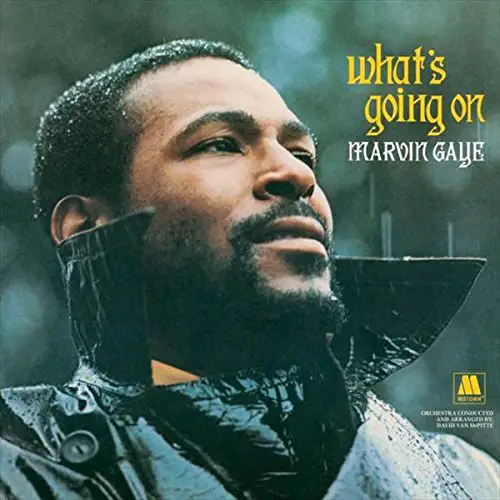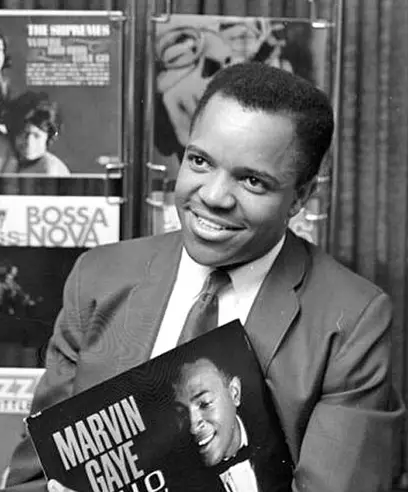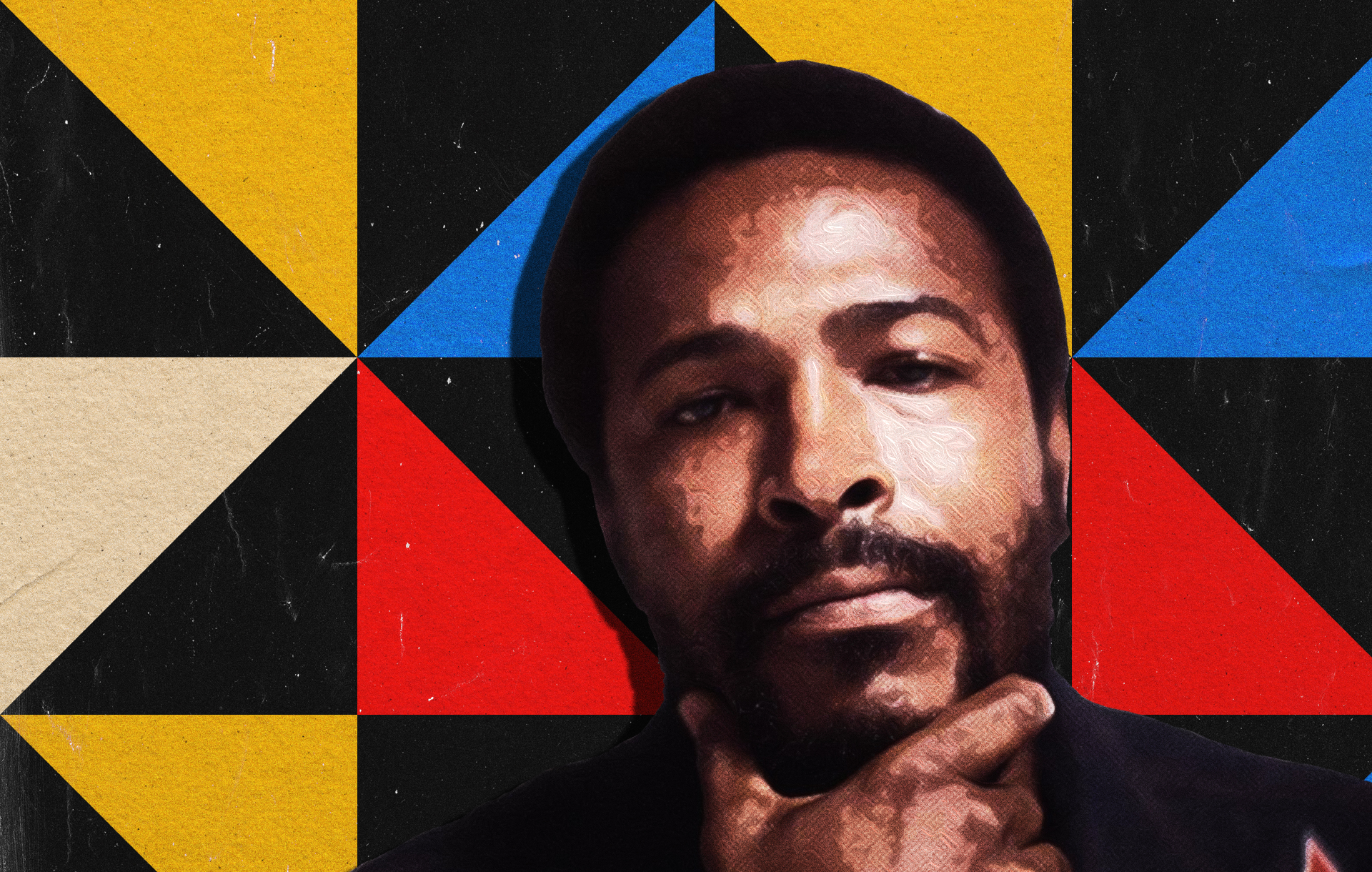It became big news recently when Marvin Gaye’s seminal album What’s Going On, originally released in1971 was proclaimed as best in modern music in a revised Rolling Stone list of 500 best albums. Should it have been big news?

Was proclaimed as best in modern music in a revised Rolling Stone list of 500 best albums
Well, not really. It is not the first time this album got such recognition. As far back as the ’80s, renowned British music weekly (now reduced to just an online publication) proclaimed it as the best in its top 100 list of all time. And then, even as far back as the early ’60s, it was evident that Marvin Pentz Gay(e) was an artist with extraordinary musical capabilities and talent. But for quite a few decades, for many reasons, including racial bias, anything that came under the brand of Soul and R&B was classified one step behind anything that came under the brand of rock music.
But times have been changing, some for better, some for worse, and reconsideration was due, and the music on What’s Going On remains as potent as it was when it first came out, and its lyrical message hasn’t lost an iota of its original importance. Almost 50 years on.
Still, it is just one of the pinnacles in Gaye’s artistic career, but one that stands a few inches above his other output, where it is hard to point to a lack of musical or artistically judgment, even though everybody has them.
How do you restrain a genius?
But why that tortured label in the title? As glorious as Gaye’s music was, his personal life, even from his early childhood, may not amount to the literal meaning of the term torture, but the torture of the soul in its symbolical meaning certainly. Physical abuse, tragic events, and countless mishaps. Let alone his tragic and premature death at the hands of his original abuser – his own father.
Marvin exhibited his extraordinary talents even as a young kid. At an early age, he became a prominent voice in his father’s ministry church, owing quite a bit to the fact that he had a four-octave voice range. Essentially that meant he could practically sing anything, low range, high range, right there in the middle. Whether that was one of the reasons his father started abusing him under the pretext of ‘running a tight family ship,’ or whatever else was involved (see under Brian Wilson and his abusive father), doesn’t matter. As some fact collecting sites note, “Gaye was beaten for any reason that his father could find, to the point where Gaye once remarked that by the time he was 12, there wasn’t a single part of his body that hadn’t been ‘bruised and beaten’ by his father.”
As could be expected, that had an undeniable influence on his later life, as is said, an often antagonistic personal stance towards other people, quarrels, broken marriages, and whatnot. What kind of influence it had on his artistic output is open to debate, except the fact that it was a great one.
Adding an E and Talents Realized
There is still a debate going on why Marvin added an E to his last name. While in these more current times many would go for the explanation that he wanted to escape homophobic comments, even though in the ’50s and ’60s that term was still not fully connected to one of its current, prevalent meanings, the ‘official’ (Motown) explanation was that Marvin wanted to pay homage to his musical idol, Sam Cooke, who also added an E to his last name. But, it could also be said that probably the key reason lay in the fact that he wanted to distance himself in from his father. You don’t have to wonder why.

While devoting himself to his musical talents (he started singing in his father’s church at the age of three), Marvin learned to play the piano and drums. Later on, as evidenced on Midnight Love, his last and one of his best albums, he was able to master practically any instrument he puts his hands on.
Trying to get away from his family situation, Marvin enlisted in the U.S. Air Force. As expected, life under a military regime was exactly the thing he was running away from in the first place. Leaving relatively quickly, he started devoting himself to music through singing in various doo wop groups. First in D.C., then Chicago, finally ending up in Detroit. That is where his inevitable music rise and realization of talents began.
In Detroit, he was noticed by Motown founder Berry Gordy, who signed Gaye to the label’s subsidiary Tamla. Initially, there was the first split of opinion that was to surface on and on in Gordy and Gaye’s relationship. Marvin wanted to specialize in jazzy standards. Gordy was insisting on a more pop R&B sound he practically invented.
A Career with No Musical Bounds, but A Lot of Personal Ones
The first time around Gaye and Gordy compromised. As AllMusic points out, Let Your Conscience Be Your Guide, satisfied Gordy’s needs, while the full-length The Soulful Moods of Marvin Gaye skewed toward the singer’s preferences. But slowly, Marvin accepted the newer musical trends.
Very soon he started scoring hits, first for others ( The Marvelettes took “Beechwood 4-5789” into the Billboard Top 20 in 1962), and then by himself (“Stubborn Kind of Fellow” and “Hitch Hike,” both 1962). Next year he was already in the pop charts too, with “Pride and Joy.” After that, it was hard stopping him, even for a while, either as a solo artist or as a songwriter. Enough is said if you just note that he was one of the co-writers of such a mega-hit that still is, “Dancing In The Street.”
The first well-known breakdown in his personal life came with the death of his very successful (and great) musical partnership with Tammi Terrell
Still, the first well-known breakdown in his personal life came with the death of his very successful (and great) musical partnership with Tammi Terrell. The duo started out with a big hit – “Ain’t No Mountain High Enough,” peaking with “Ain’t Nothing Like The Real Thing.” But, it turned out that Terrell, who had constant migraines was suffering from a terminal illness, passing away in 1970.
At first, Marvin was attempting to cover his grief with coming up with some brilliant music and hits. It was actually the period when he recorded his probably best known single, “I Heard It Through The Grapevine” (1968-69).
Actually, the recording of that song was marked by one of the better known conflicts with Berry Gordy. Gaye decided to sing the song in a key higher than his usual pitch. Gordy didn’t like it, and even tried to block the song’s release. The money that poured into Motown’s vaults probably changed his mind.
Then Came His Best
The aftermath of Terrell’s death, coupled with ghosts from the past and drug use, took its toll, and Marvin practically disappeared until 1971. But, instead of completely falling apart he came up with the genius that was What’s Going On. First place, or no first place, it remains and will remain what it is – a musical and social statement of a genius that is absolutely timeless. It was, and still is, so inspirational that another artist with a golden streak named his own album (probably his best, too) as a response to Gaye’s album title and content – Sly Stone and his There’s A Riot Goin’ On. At the same time, it was a huge financial success for Motown too. No wonder that prior to its release Marvin signed the best deal for an African American artist at the time worth $1 million.
There was a brief void that followed. Gaye tried to make another socially charged album around the song “You’re The Man.” The single of the same name bombed and the album never materialized. But what followed is a series of film soundtracks (Trouble Man standing out), including a few acting roles too.
But that brief artistic pause brought a shift in direction, and emergence in what is considered a lover’s classic – Let’s Get It On, and yet another album that finds its high place on many ‘best of’ lists.
What followed, is probably one of Gaye’s albums that received the most re-assessments. While criticized at the time, Here, My Dear is now considered as yet another Gaye classic. Actually, the album was recorded as an agreement that was to cover alimony after the divorce of Marvin’s then-wife Anna Gordy.
It actually was so explicit about their personal life, that Anna threatened Marvin with a $5 million lawsuit over the invasion of privacy.
Mounting Troubles, Grammys, and a Tragic End
Gaye’s second marriage to Janis Hunter didn’t fare much better either. Their marriage lasted for a relatively brief time (1977-81), with Hunter’s accusations of both physical and drug abuse. Eventually, later on, Gaye was able to reconcile with both of his former wives, remaining in good relations with both until his death.
During that period, heavy cocaine abuse brought on paranoia, with Gaye spending his last tour wearing a bulletproof vest and engaging armed bodyguards. Premonition, maybe.
Heavy cocaine abuse brought on paranoia, with Gaye spending his last tour wearing a bulletproof vest
Realizing that he is at a low point after a tour of Europe in 1981, Gaye remained at a friend’s place in Belgium. It seems to have helped him consolidate both his life and music. The result was his move from Motown to CBS and his final album Midnight Love and great single success with “Sexual Healing” (also the name of his last live tour). Actually, this was the album and the song that brought Gaye his first Grammy awards.
At the end of the tour, Gaye decided to move back to his parent’s home in D.C. The reasons were two-fold. He wanted to help with the care of his mother who went through a heavy surgery and to try and reconcile with his father.
The first may have worked, unfortunately, the latter didn’t. Marvin and his now elderly father constantly argued, so much so that “his father once called the police on his son to have him removed from the property.” Marvin refused to leave, and it ended up in a tragedy.
According to media accounts, on the afternoon of April 1, 1983, Gaye found himself embroiled in a vicious verbal attack against his mother by his father. Gaye intervened on his mother’s behalf, ordering his father away from them both. When his father refused to comply, Gaye physically attacked him, only stopping when his mother pulled his father and son apart. Just a few minutes later, Gaye’s father returned to his son’s room, this time armed with a gun, which he used to shoot his own son to death.
The immense magnitude of this personal and family tragedy only grew as time passed by and accentuated the artistic quality of the music Marvin Gaye left behind. The Rolling Stone naming What’s Going On as its best album of all time is just another signpost along the road.




